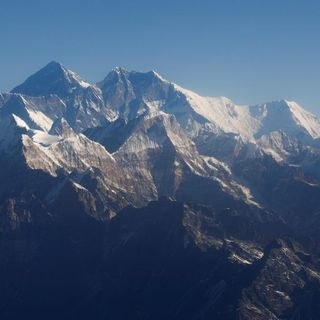To meet global warming limits set by the 2016 Paris Agreement, the global food system — an oft-overlooked industry in climate conservation — will need to be overhauled, finds a new study published in Science. Even if fossil fuel burning halted right this minute, emissions from the world’s food systems alone would make it impossible to keep the global temperature rise (from pre-industrial levels) between 1.5 and 2 degrees Celsius. This is because greenhouse gas emissions from food systems account for a whopping 30% of all global emissions, amounting to 16 billion metric tons of CO2 per year.
“Food systems are sort of the dark horse of climate change,” senior author of the study, Jason Hill of the University of Minnesota, told the New York Times. The study lays out how food systems contribute to climate change, involving processes such as deforestation, livestock rearing, manufacturing, packaging, transport, and finally, food waste treatment — contribute to climate change.
In India, the problem lies mainly at the beginning of the food supply chain. India is a low-yield country, with its cereal yields significantly lower than those of East Asia, North America, or Europe. With low productivity plaguing farmers, who are left without the education or resources to increase yield, more and more land is cleared to keep up with demand. This deforestation wreaks havoc on the environment. In India, the growing urban population is also moving away from a cereal diet and toward one that is rich in meat, which increases the demand for grain (in order to feed livestock as well as people), perpetuates deforestation — and ultimately adds to emissions.
Related on The Swaddle:
U.N. Warns World Heading Toward Famines of ‘Biblical Proportions’ Due to Covid19
Indian diets have also evolved to include more processed foods, which puts pressure on the environment by creating more food waste than traditional diets. Overproduction of cheap processed food, as well as the additional packaging processed food requires, means landfills are full of excess product and packaging, contributing to methane emissions.
The food system-to-climate crisis loop gets all the more complicated when looking at a country like India, which is projected to have 1.6 billion people by 2050. Balancing the need to feed a growing population while keeping the environment intact will be a huge undertaking in the future, especially for a developing country such as India. The new study advises a change both in food systems — less fertilizer use, better waste management systems — and people’s behavior — a shift toward plant-rich diets.
Researchers are positive it is doable, as long as there is will, both at the individual and institutional levels. “Every person has a role to play, every corporation as well,” lead author of the latest study, Michael Clark, told the New York Times. “Through collective action and political will we can actually do this pretty rapidly.”




